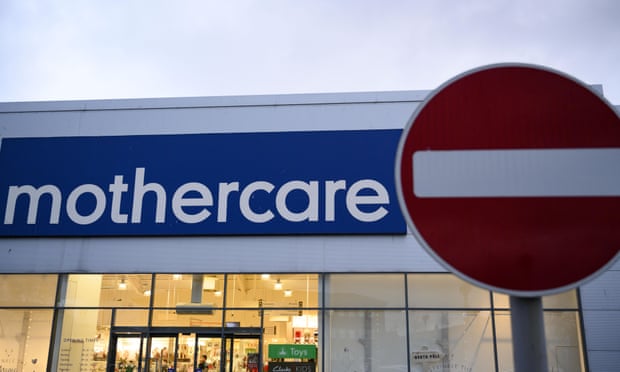Surge in online shopping eases pressure on UK retailers, says CBI
A surge in shopping from home has eased the pressure on retailers caused by England’s four-week lockdown and tighter restrictions in the rest of the UK, according to a survey from the CBI.
The employers’ organisation reported that while the level of spending was well below normal there were also clear signs of consumers substituting online purchases for visits to stores in person.
In its monthly distributive trades survey, the CBI said a balance of -25 percentage points of retailers said trading was below normal for the time of year, compared with a balance of -23 points in October. The balance represents the difference between the retailers saying activity is higher and those saying it is lower.
With non-essential stores shut in England from 5 November, the survey found annual internet sales growth picking up. A balance of 55% of retailers said the volume of goods shifted online was up year on year, against 47% the previous month.
Quick Guide
Why are UK high street retailers in trouble?
Show
What’s the problem?
Physical retailers have been hit by a combination of changing habits, rising costs and broader economic problems as well as the coronavirus pandemic. In the past few years names such as Mothercare, Karen Millen, Toys R Us, Maplin and Poundworld have disappeared from the UK high street as a result.
In terms of habits, shoppers are switching to buying online. Companies such as Amazon have an unfair advantage because they have a lower business rate bill, which holds down costs and enables online retailers to woo shoppers with low prices. Business rates are taxes, based on the value of commercial property, that are imposed on traditional retailers with physical stores.
At the same time, there is a move away from buying “stuff” as more people live in smaller homes and rent rather than buy. Uncertainty about the economy has also slowed the housing market and linked makeovers of homes. Those pressures have come just as rising labour and product costs, partly fuelled by Brexit and the coronavirus, have coincided with economic and political uncertainty that has dampened consumer confidence.
What help do retailers need?
Retailers with a high street presence want the government to change business rates to even up the tax burden with online players and to adapt more quickly to the rapidly changing market. Retailers also want more investment in town centres to help them adapt to changing trends, as well as a cut to high parking charges, which they say put off shoppers. Many businesses which deal with complex supply chains also want additional help with the new red tape and import charges imposed after Boris Johnson’s Brexit deal saddled them with extra costs.
What is the government doing?
In the December 2019 Queen’s speech, the government announced plans for further reform of business rates including more frequent revaluations and increasing the discount for small retailers, pubs, cinemas and music venues to 50% from one-third. It has also set up a £675m “future high streets fund” under which local councils can bid for up to £25m towards regeneration projects such as refurbishing local historic buildings and improving transport links. The fund will also pay for the creation of a high street taskforce to provide expertise and hands-on support to local areas.
Photograph: Matthew Horwood/Getty Images EuropeWas this helpful?Thank you for your feedback.
A breakdown by retail sector revealed that department stores had the toughest month, with a balance of -96% reporting a fall in sales compared with a year ago. There were also sizeable drops for clothing and footwear outlets.
Ben Jones, CBI economist, said: “This month’s survey gives hope that the economic impact of the autumn lockdowns should not be as severe as in the spring. Both consumers and firms are adapting as best they can, borne out in this month’s strong online sales.
“For many retail sectors, particularly those with less of an online presence, conditions remain extremely challenging. Retailers will be looking to salvage what they can from a very difficult year and many will be greatly relieved by the announcement that they can reopen over the crucial Christmas trading period.
Sign up to the daily Business Today email or follow Guardian Business on Twitter at @BusinessDesk
“With encouraging progress on mass, rapid testing and vaccine solutions coming down the track, there is reason for growing consumer and business confidence going into 2021.”
Samuel Tombs, analyst at Pantheon, said the timing of the survey was partly responsible for the findings being less weak than expected.
The CBI conducted its research between 27 October and November, with the period leading up to the English lockdown marked by a surge of activity by consumers keen to beat the tougher restrictions.
Tombs said he expected the official retail sales figures to show a 10% drop in spending in November, followed by a 15% jump to a new record in December.


